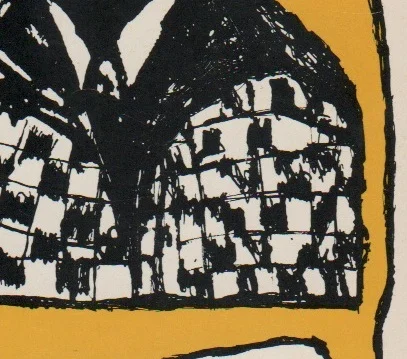While there is a plot to Apparitions of the Living, the narrative contained within the text is mere subplot to the larger plot of the reader’s engagement with the composite of the object and textual qualities of the book.
Read MoreConstructing personae as a defense against death. The knowability of others. His whole artistic project has been a long eulogy. A multimedia patchwork of suicidal ideation.
Read MoreShiv manages it, you know. He manages to talk about love, or talk about talking about love and how talking about love mucks up love. But he doesn’t muck it up, at least not when he’s writing, even though his writing is so tempered by fears of and apologies for mucking it up that surely, you’d think, he must muck it up.
Read MoreAs an artifact, it initially seems incredibly bare, reducing an experience to the simplest of visual symbols and the tersest of prose. Upon close study, it becomes clear that there is much contained within North Was Here which does not demand detailed explication and which lay teeming under a cold, glacial surface.
Read MoreYou, Jana Beňová, are, of course, fated to the lineage of Lispector, Lefebvre, and Cixous, women who do not bother to pin their words down to the ground but let them swirl up above, overhead.
Read MoreReading Motoya, you forget what weird is. You forget what is normal… When Yukiko Motoya sets out to write a story, whether it be situated in marital strife or at the market, she takes our mundane observations and concerns, cracks them, and cooks with the weird egg gunk
Read MoreFor the inmates in Revueltas’s The Hole, as with Vladimir and Estragon in Beckett’s Waiting for Godot, the hopelessness of their outcome in life breaks them, their physicality and humanity also warped around a banged up idea of time.
Read MoreIt’s poignant that Mieko Kawakami selected for her protagonist a boy, capable of delighting in the world without judgment, for whom realizations are more novel, and enamoration is not distorted by the harshness of adulthood.
Read MoreBerkson uses his ostensible memoir as an outlet for some final artistic collaborations, asserting that the focus of his life was not himself, but the people around him. Kraus swims in the opposite direction; she flips the platform of art writing in on herself, centering herself in a way that reads like memoir.
Read MoreIt is a whirling text which instinctively launches itself down the streets of Buenos Aires, only stopping to ask questions about man’s inclination toward structure and the relationship between autonomy and reality.
Read MoreTaking place in the underbellies of Paris and London from the late 1960s to the early 1970s, among the 1968 French student riots and the Brian Jones-era Rolling Stones, Dusty Pink does not so much live in its time as it fetishizes it and then relishes in its fetish.
Read MoreWhat is known about Laurie Bird? In total, it’s far from enough information to be a basis for “knowing”, both in the sense of knowing about her and personally knowing her.
Read MoreBeatriz Bracher’s protagonist Gustavo becomes aware of his own dissociative tendencies and begins to address his past and work through his shame and traumatic experiences under torture. I Didn’t Talk is a cheeky and patient book, gently confronting pain without sacrificing wit, a book which merges together a fraught past and an uncertain future.
Read MoreThe following interview is pieced together from a recorded interview with the poet, scholar, and educator Nick Sturm at the Lean Draft House in Atlanta, GA. It was made at a picnic table. Nick Sturm studies “second-generation” New York School poets, writes poetry, collects mimeographed literature, and is a Marion L. Brittain Postdoctoral Fellow in the School of Language, Media, and Communication at the Georgia Institute of Technology.
Read MoreTo "reject progress", in Moschovakis’s terms, is not necessarily to degress (although it may appear to be degression within the framework of progress), but to reject the framework of progress itself. As an alternative, Moschovakis proposes the notion of “getting up”, to become unstuck, to arise from the lethargy of entrapping habits.
Read MoreEve is a staunch defender of Los Angeles, the Los Angeles underneath tourist impressions and artificial facades, the Los Angeles of pachuco and surfer subcultures, glamour, sunshine, and stumbled-upon elegance. To each person who calls Los Angeles a wasteland, she says to them, you don’t know this place like I do.
Read More…the narrator’s flashbacks into her Berlin past, her escapades with a pianist and a paratrooper, her escapades which are maybe romantic and maybe artistic, they remind me of my own escapades and the souls which come up like flashbacks when I wanted too much or too little and which shaped my development as an artist.
Read MoreAggressively Gentle seems to be penned as much to the emptiness of the world as to an abstract object of desire.
Read More



















